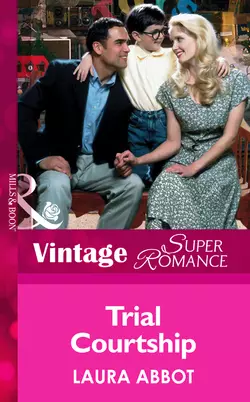Trial Courtship

Laura Abbot
Тип: электронная книга
Жанр: Современные любовные романы
Язык: на английском языке
Стоимость: 458.46 ₽
Статус: В продаже
Издательство: HarperCollins
Дата публикации: 16.04.2024
Отзывы: Пока нет Добавить отзыв
О книге: It isn′t easy being a kid. Life′s a trial for nine-year-old Nick Porter. His grandfather wants him to be good at sports, but he′s hopeless. His grandmother wants him to eat vegetables, but he hates them. His aunt Andrea–who′s his guardian–is nice, but she′s always on him about school and manners and stuff.It isn′t easy being an adult. Tony′s worked hard to escape his past, and that means business always has to come first. So he′s less than happy when he′s called for jury duty during crucial merger negotiations. Then he meets Andrea Evans and starts to think it might be time to put pleasure before business….It isn′t easy being a family. If Tony′s going to have a chance with Andrea, he′ll have to win over her nephew. And something tells him Nick will be a formidable opponent.